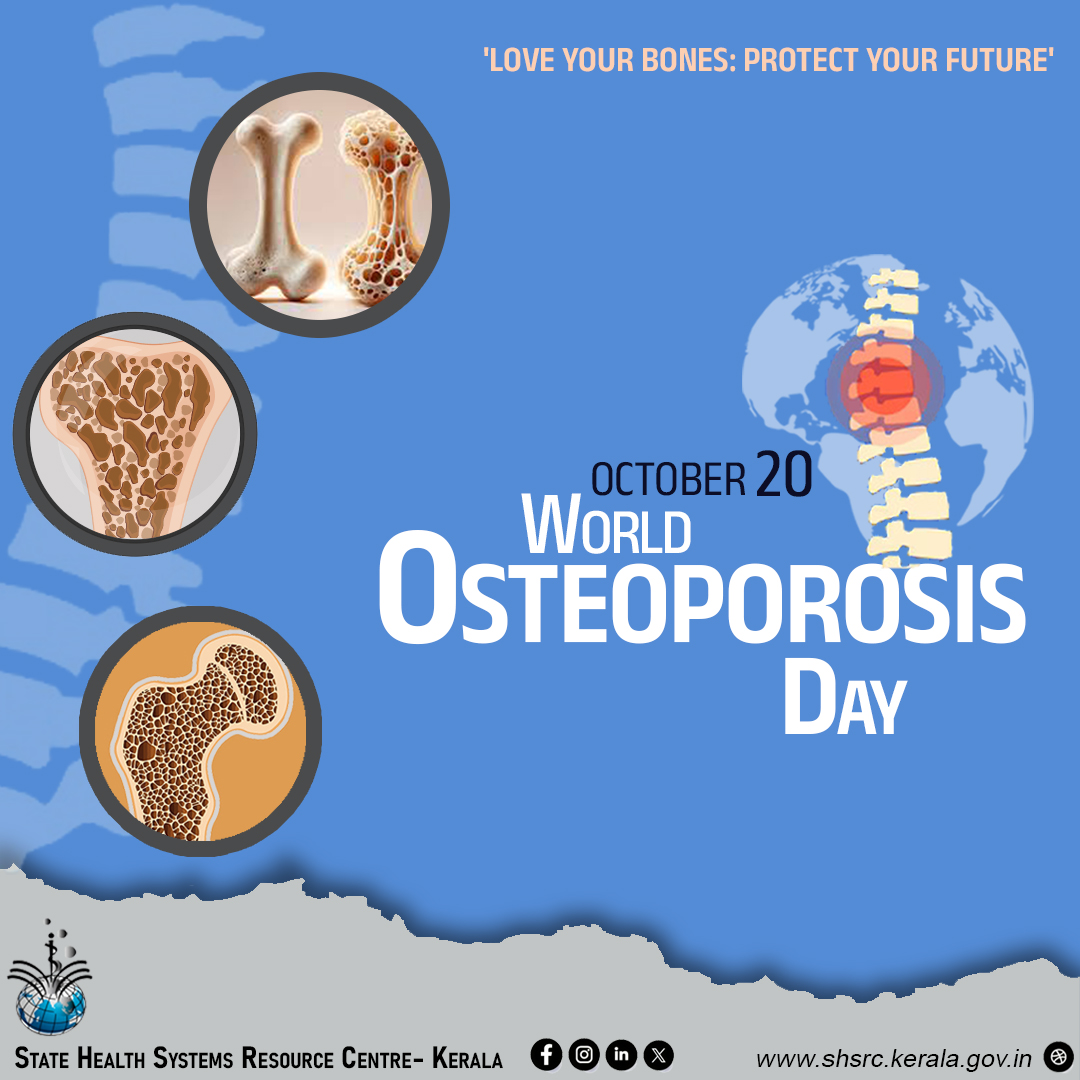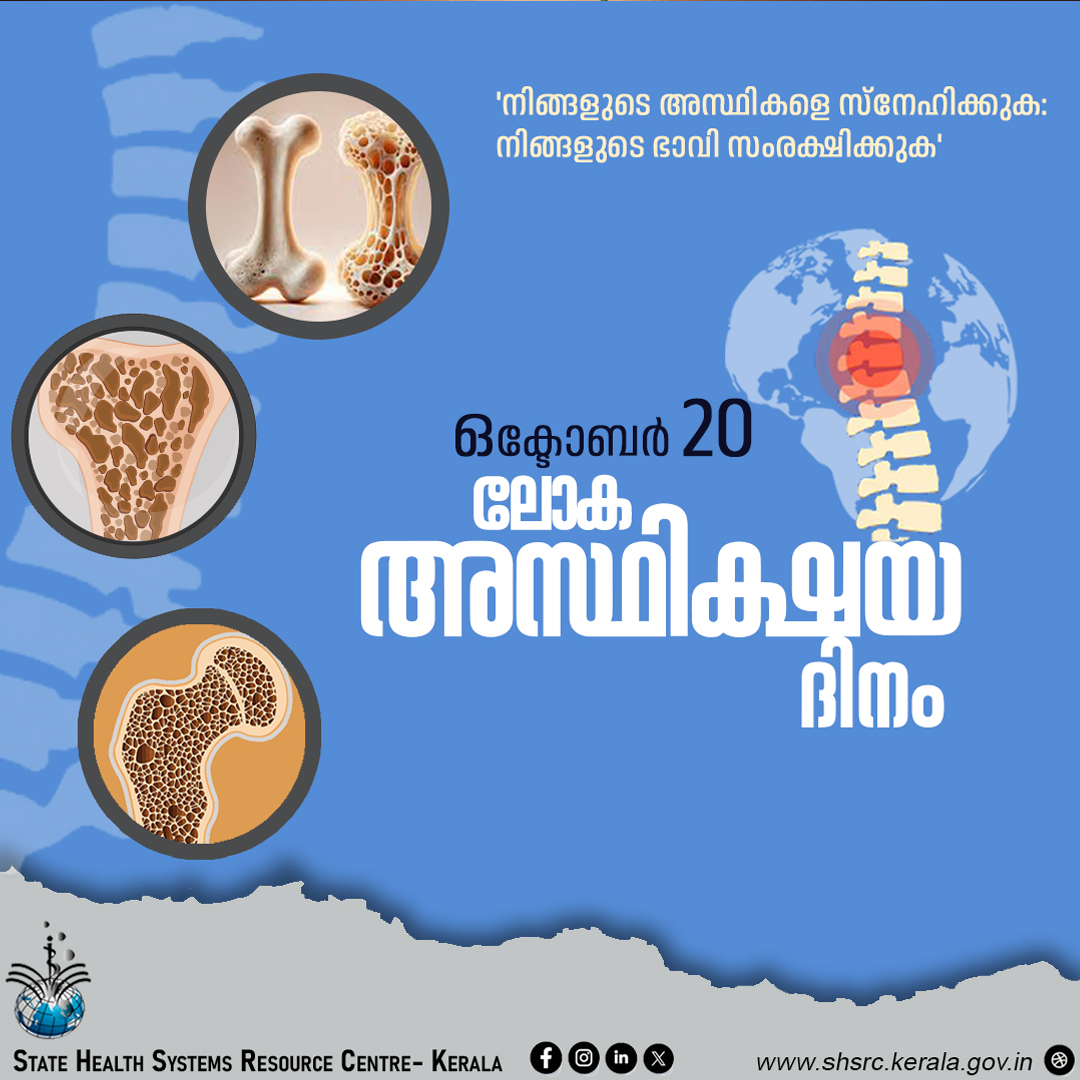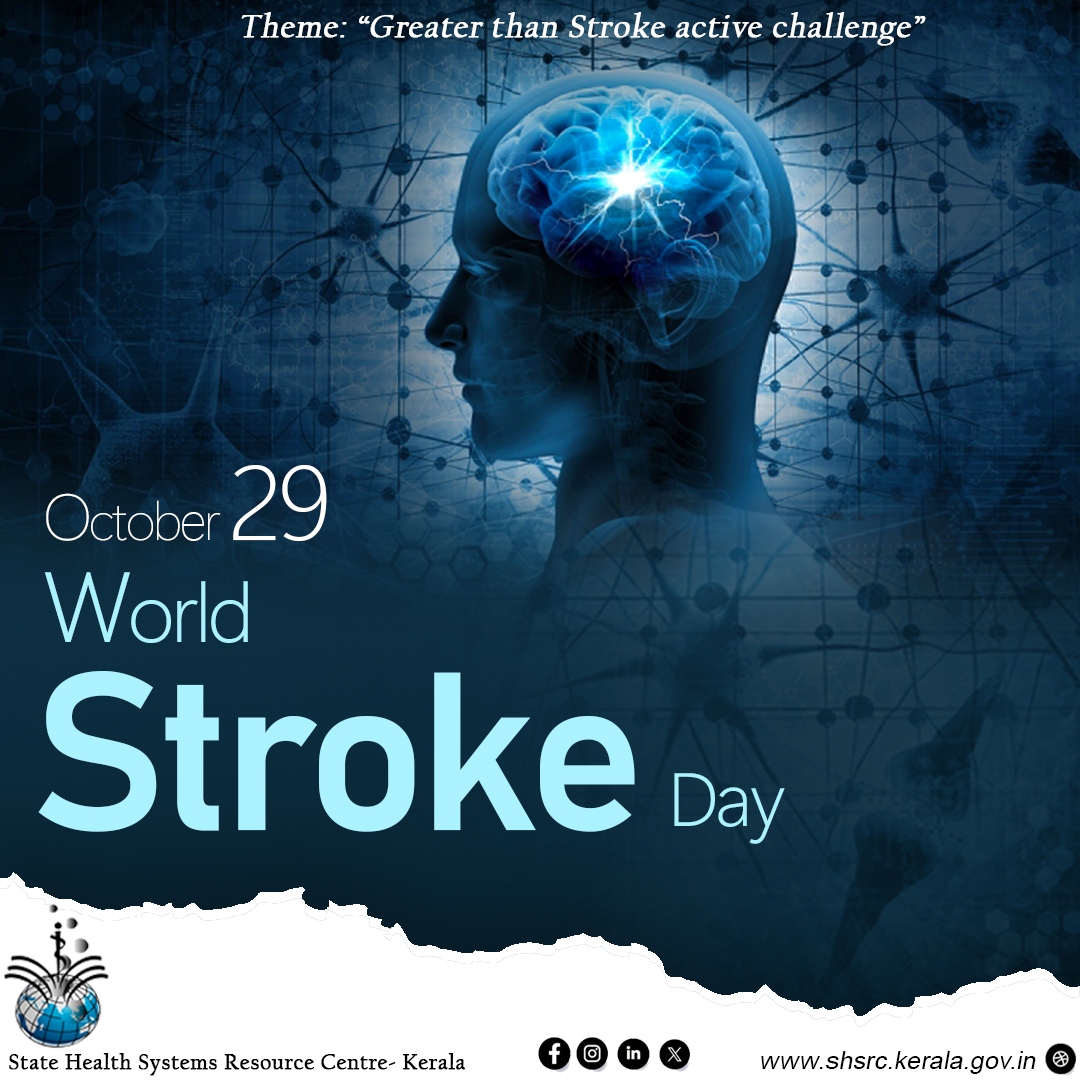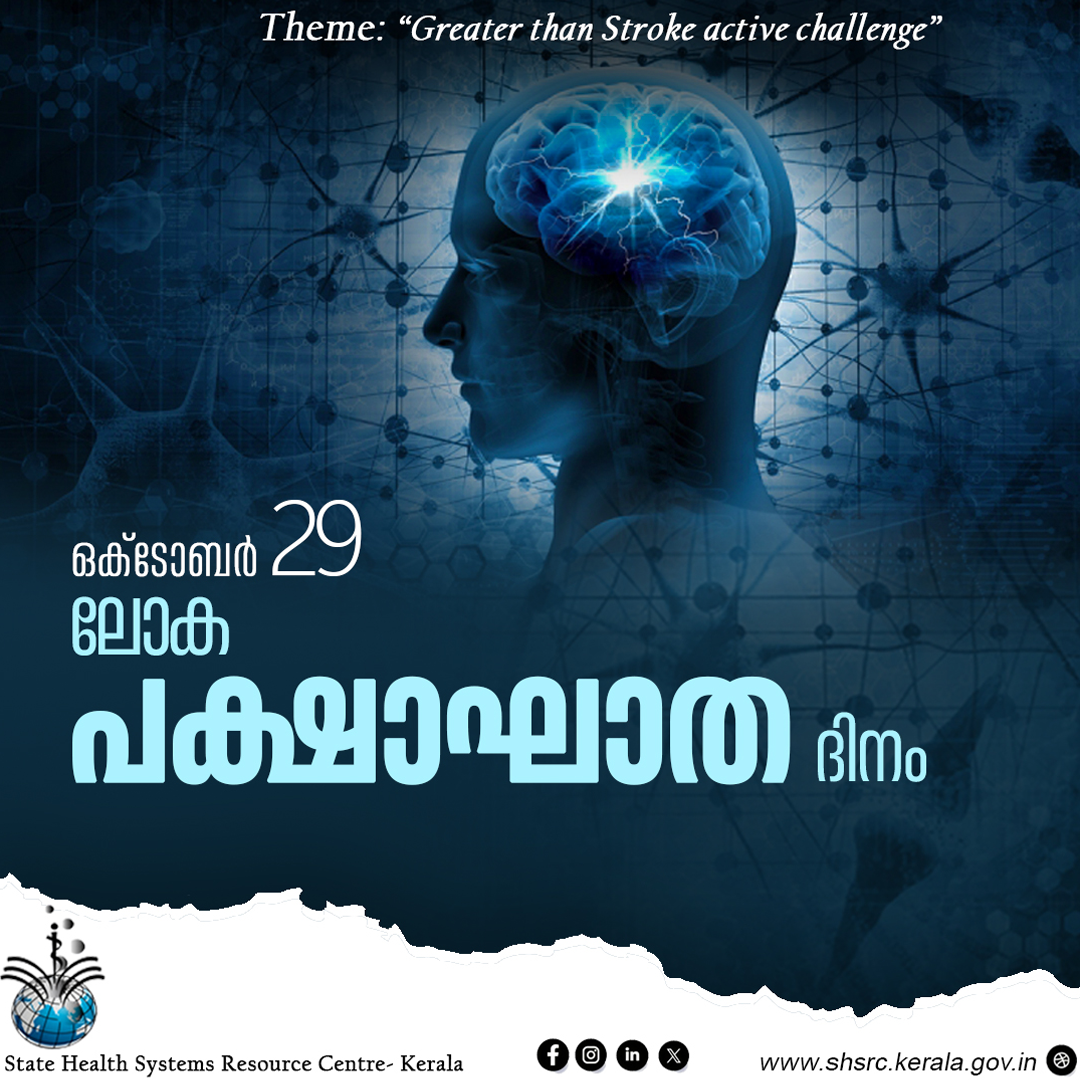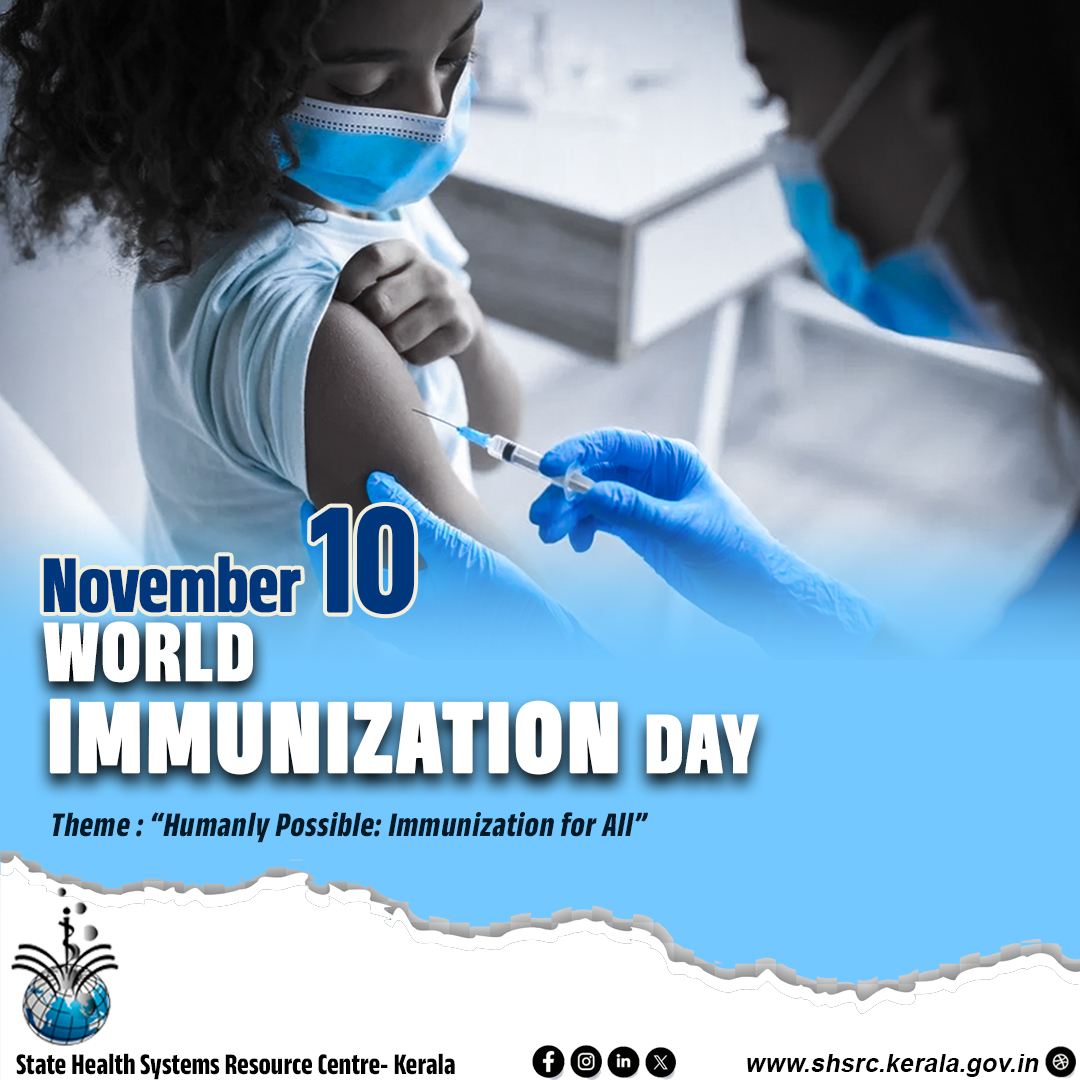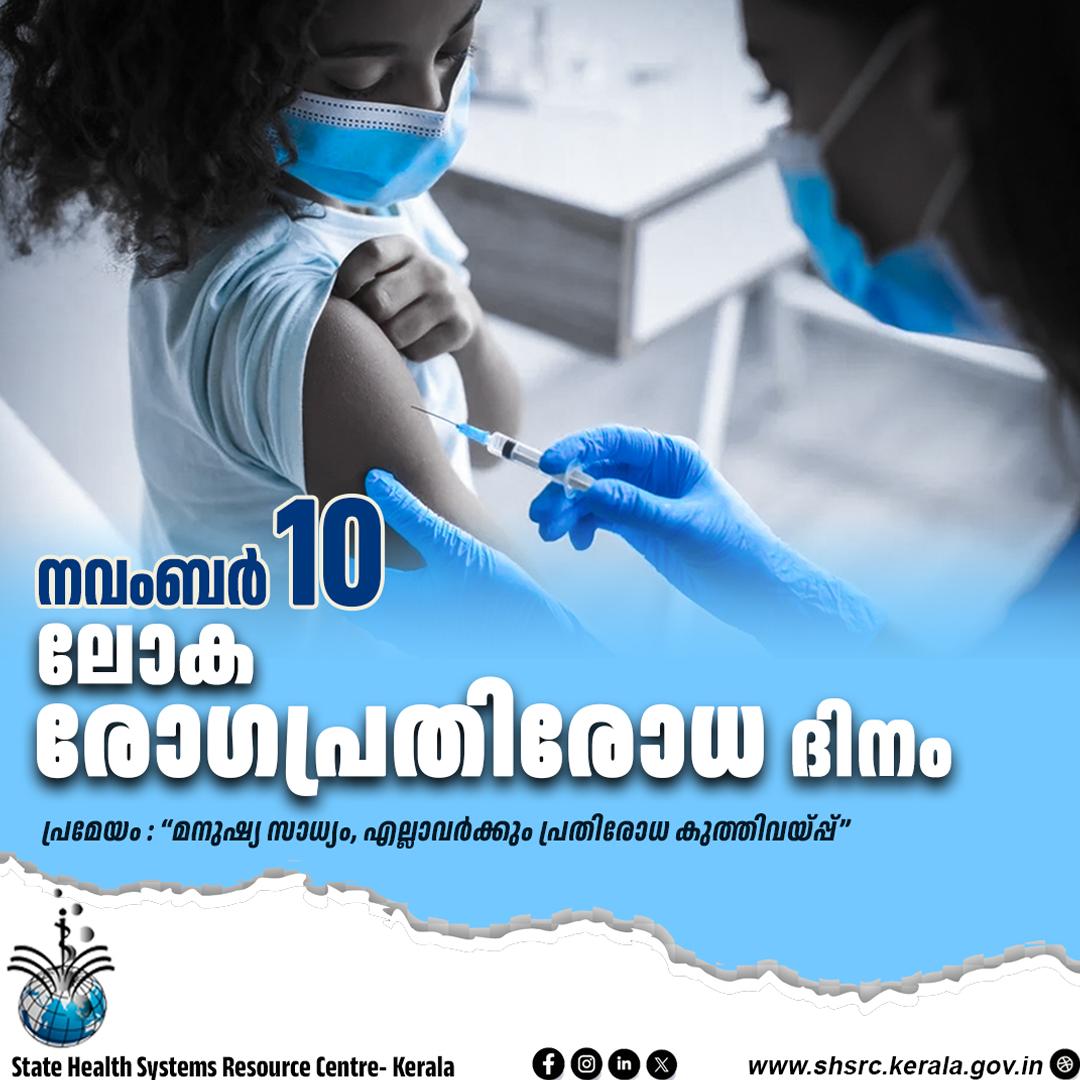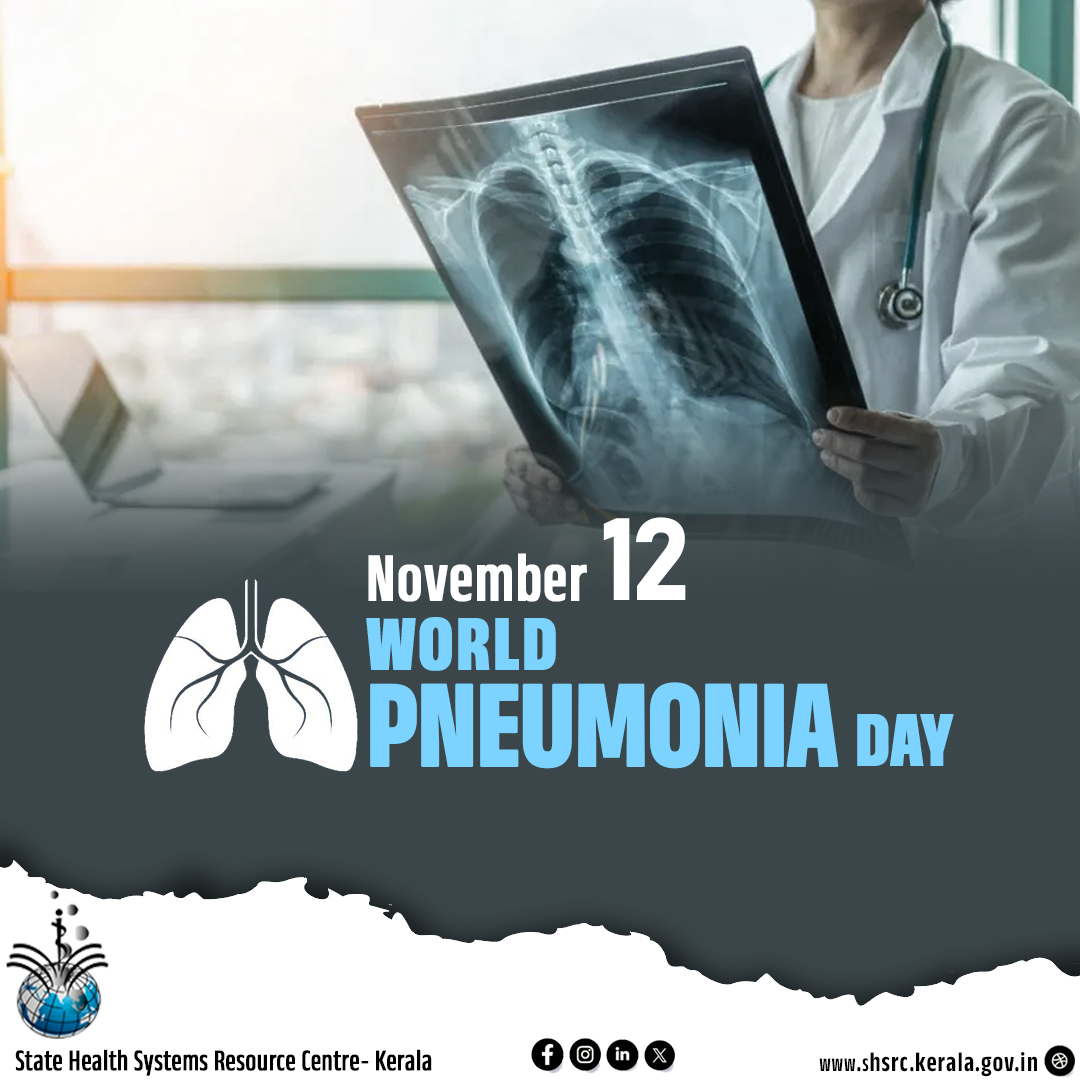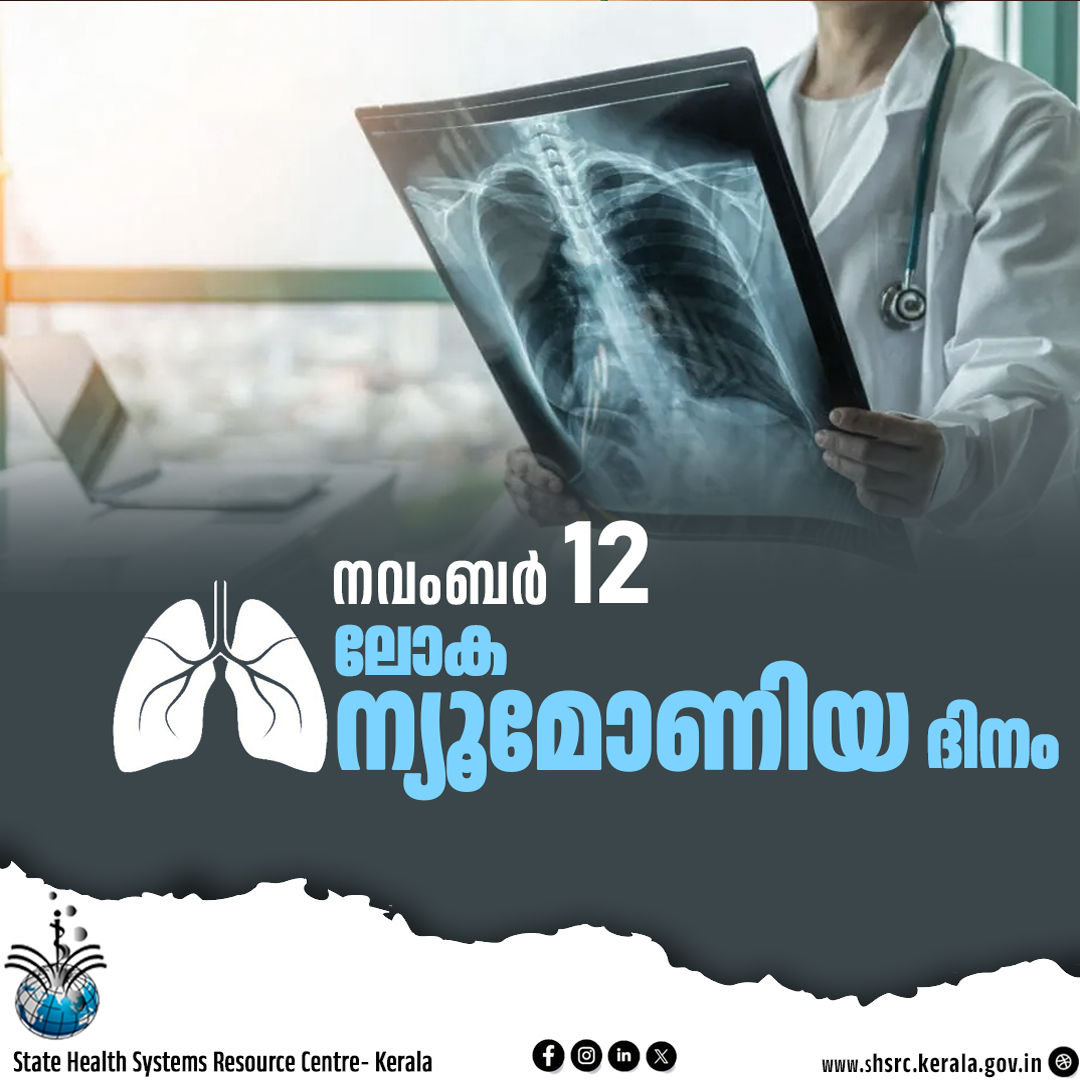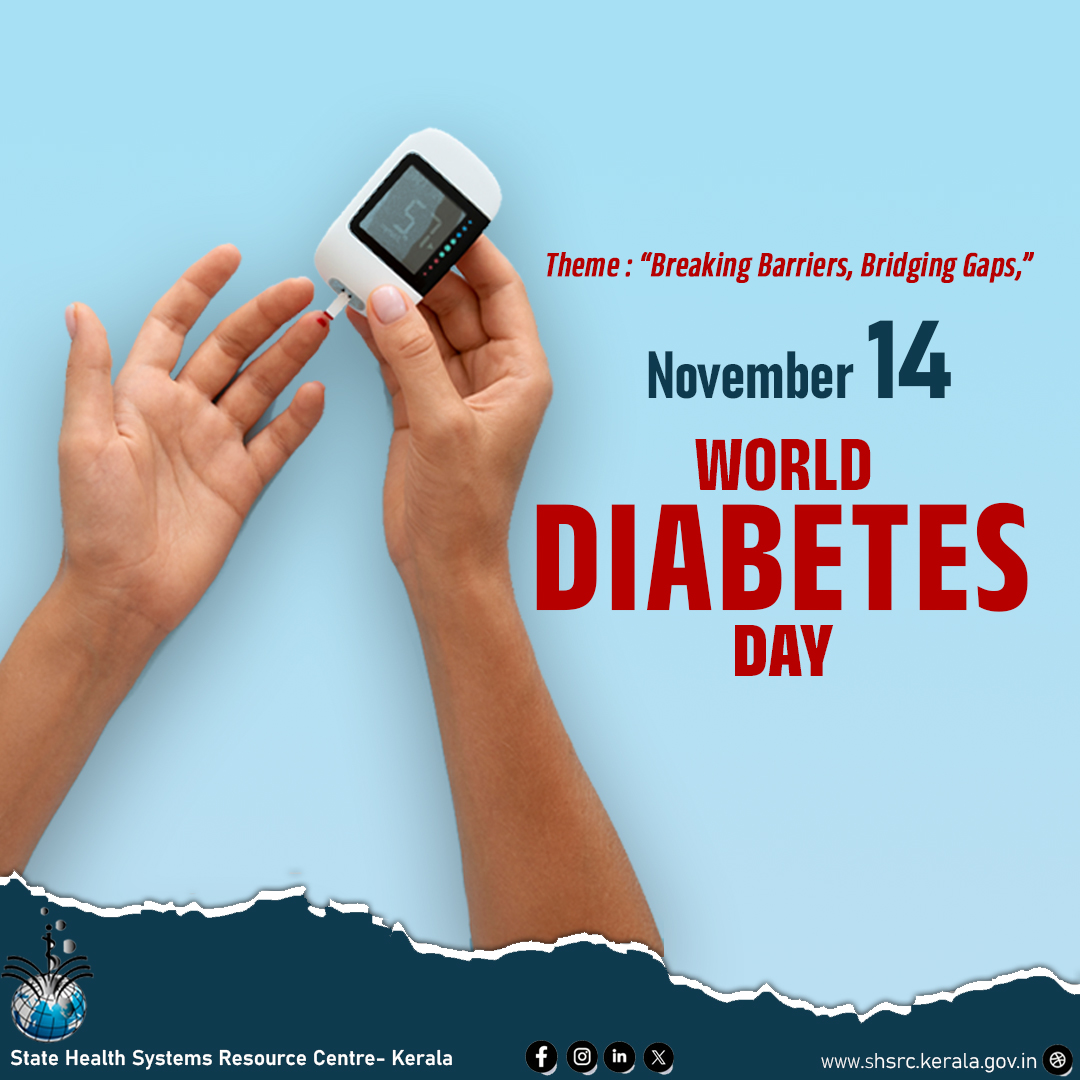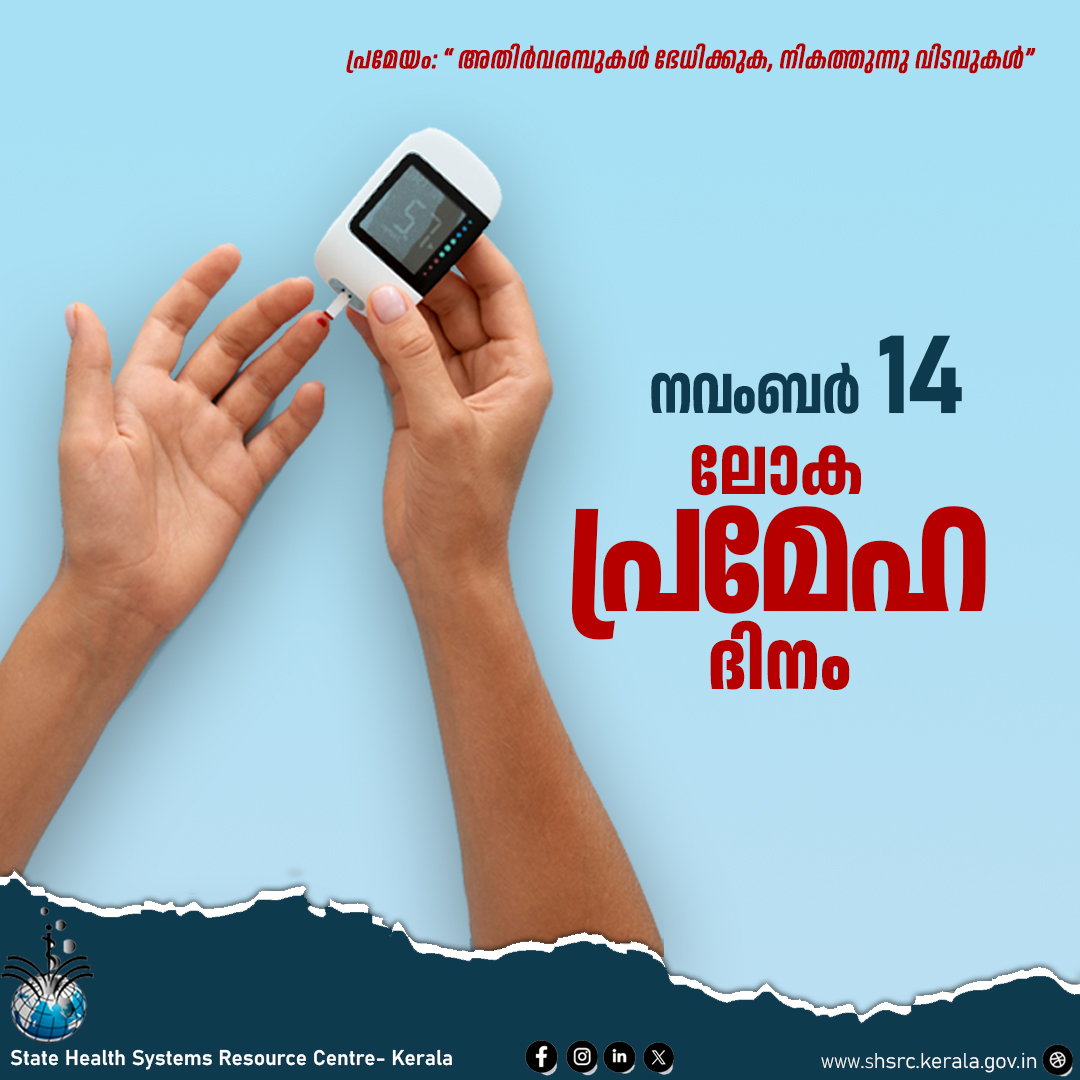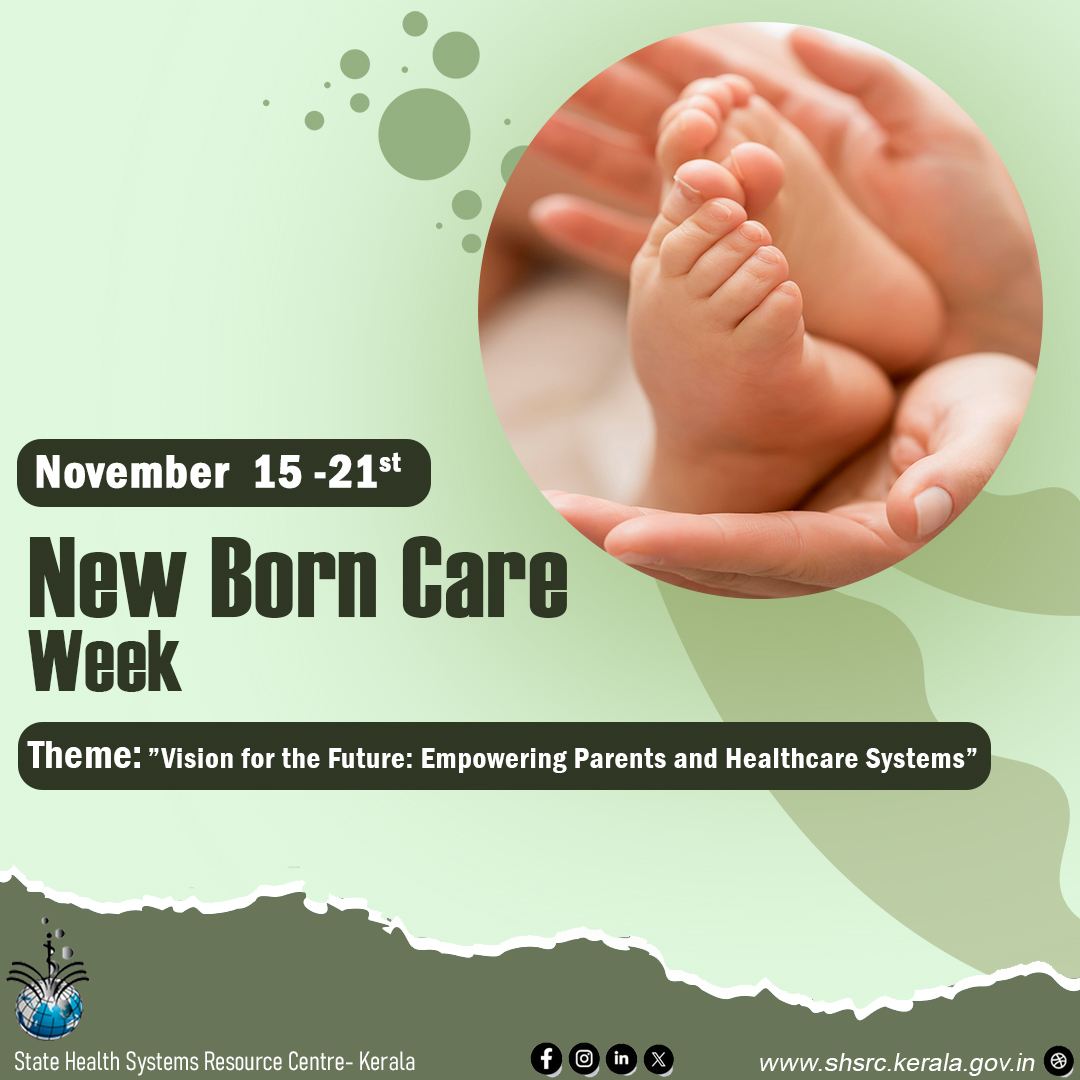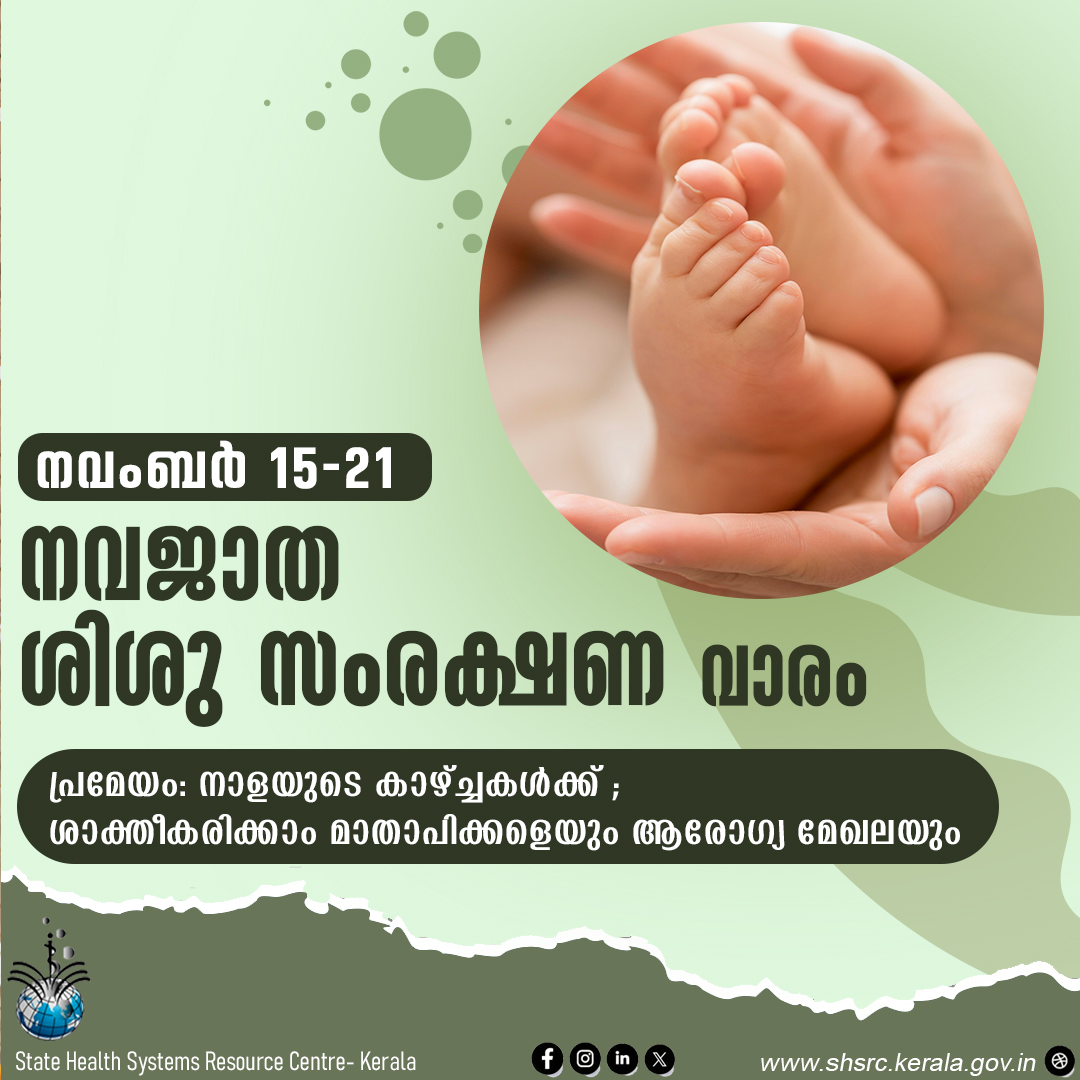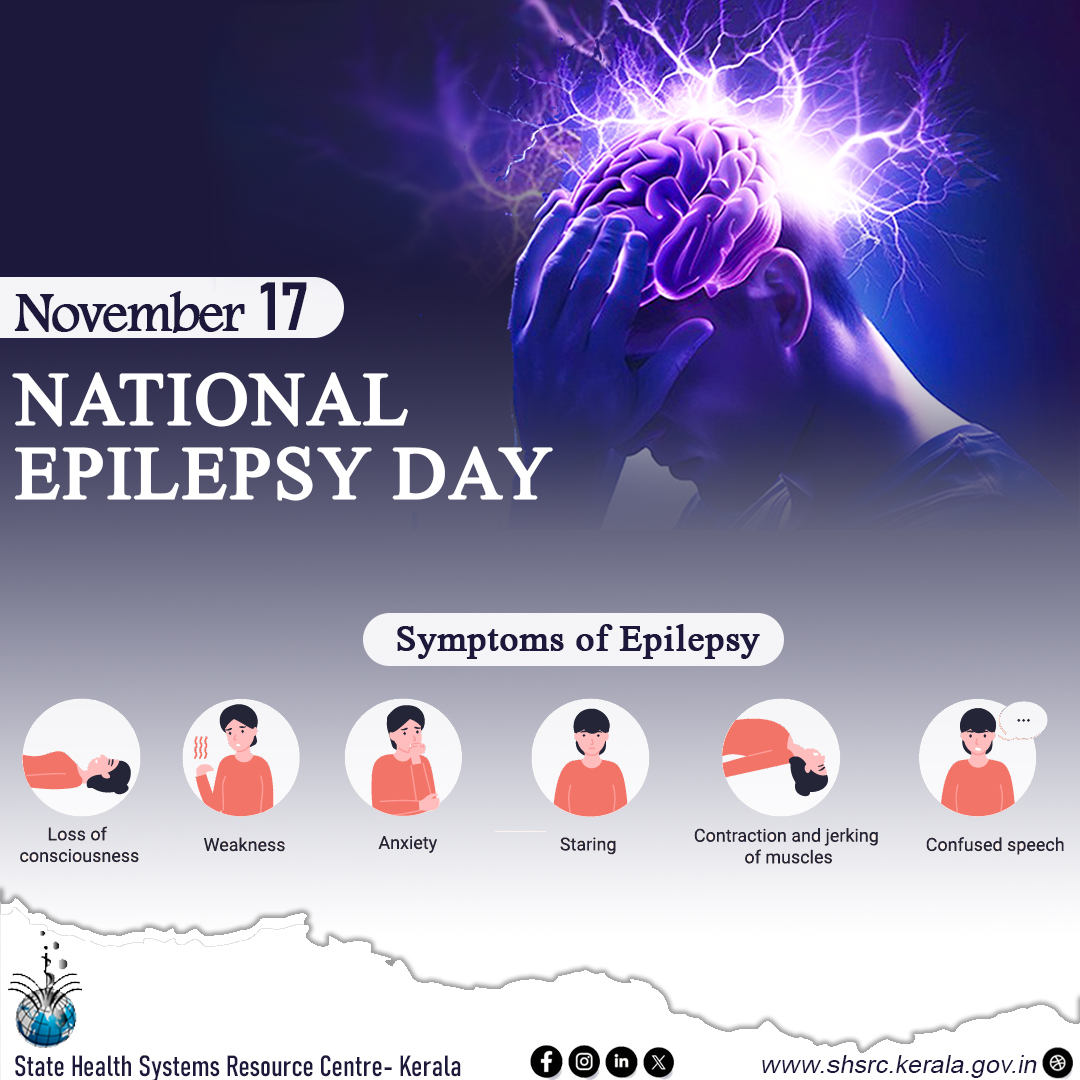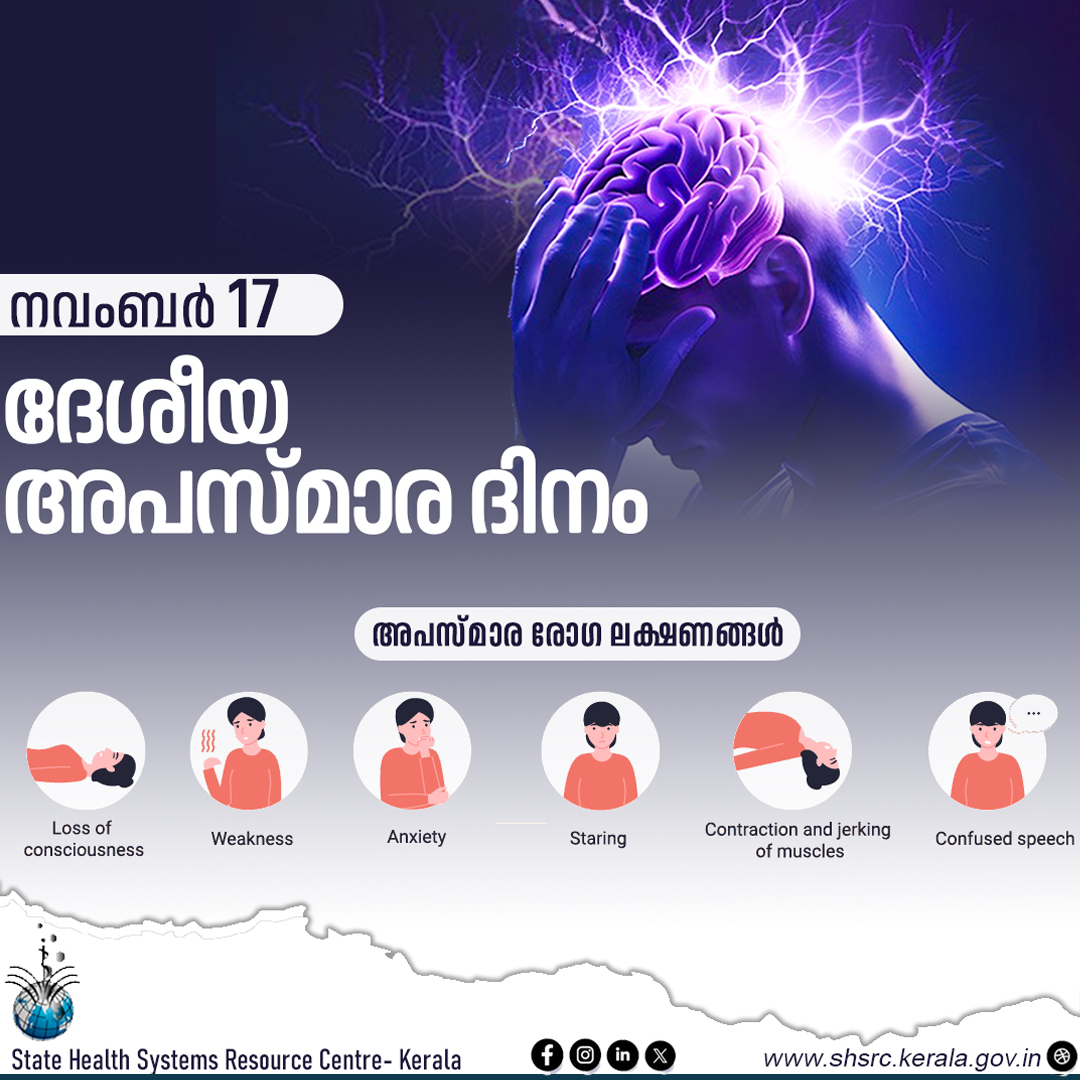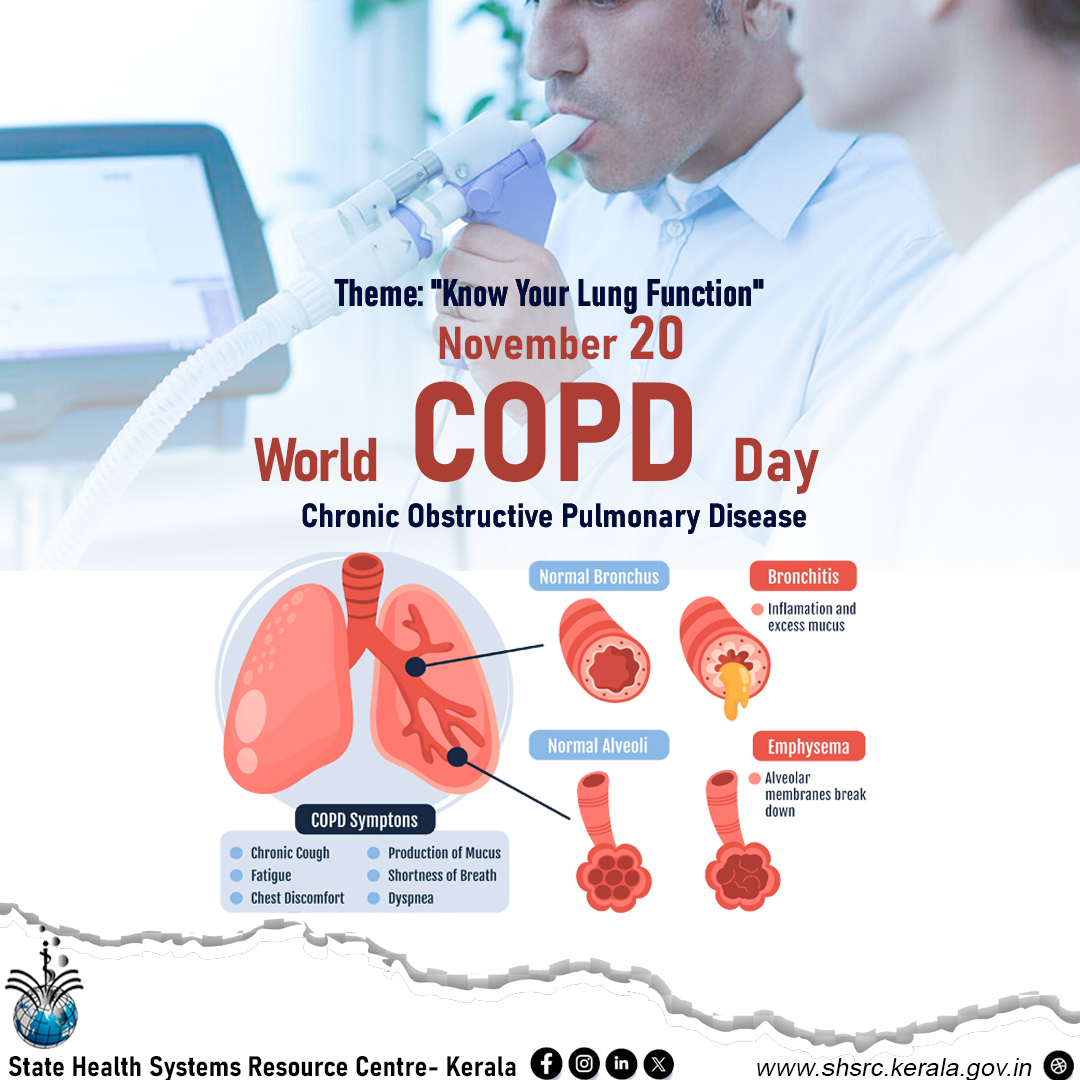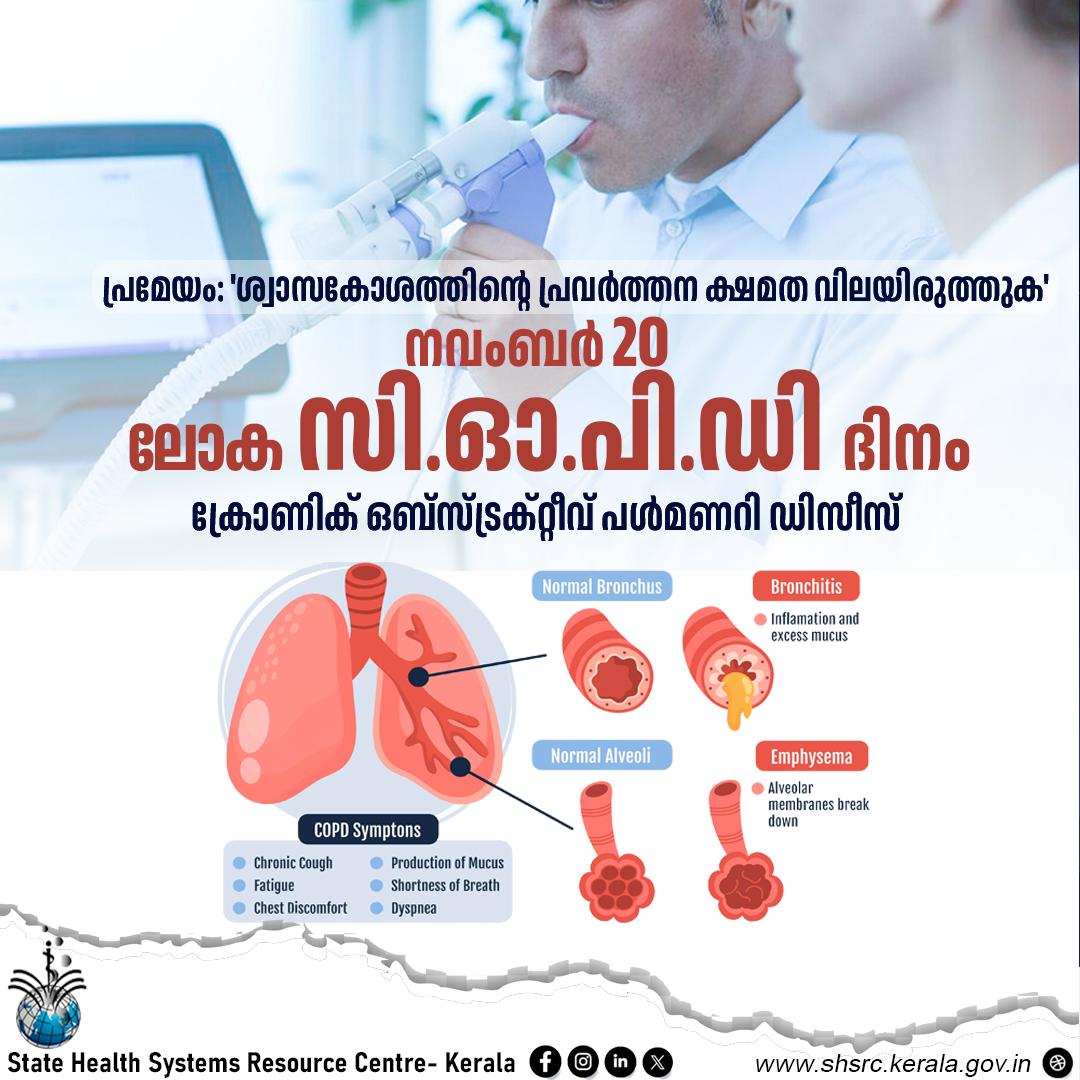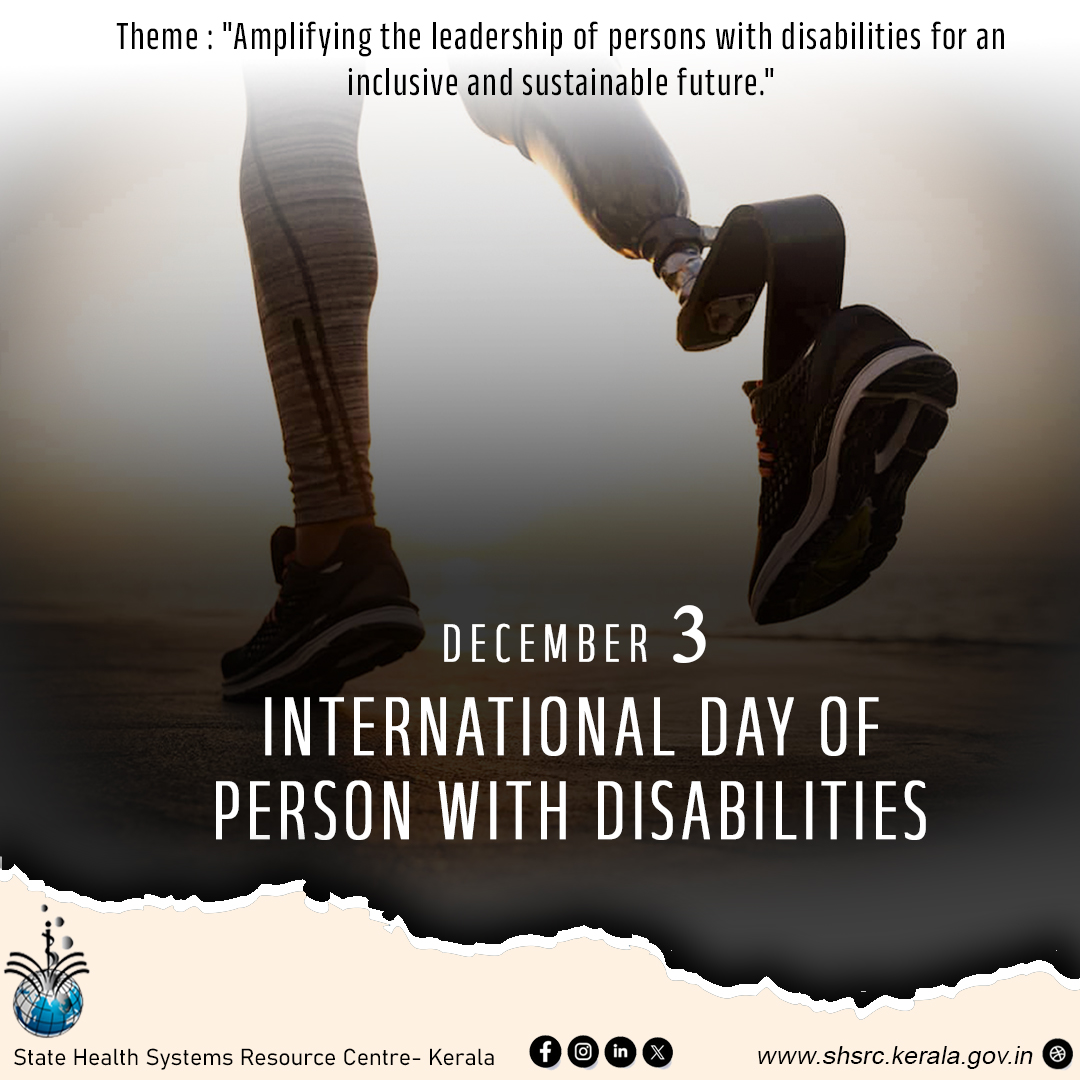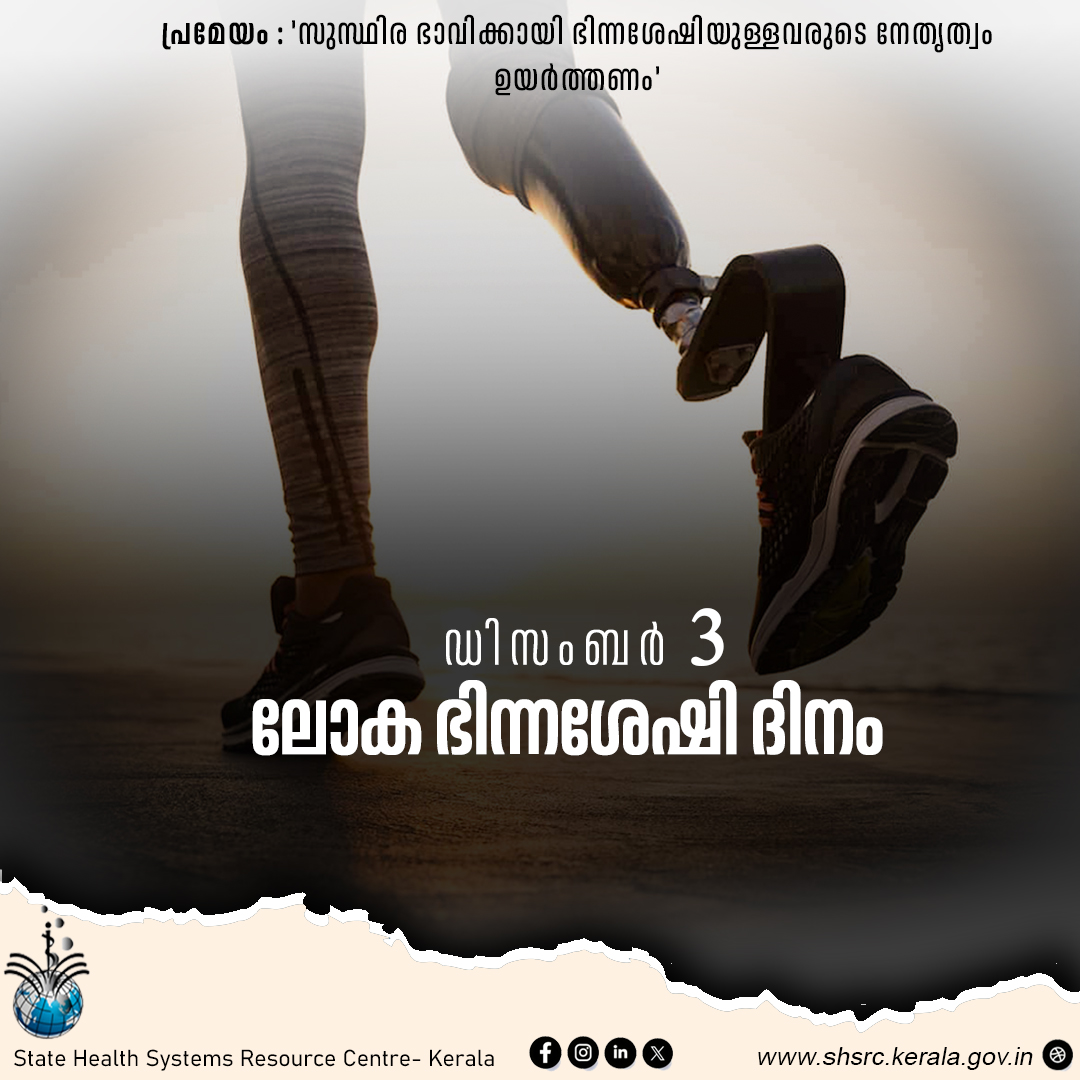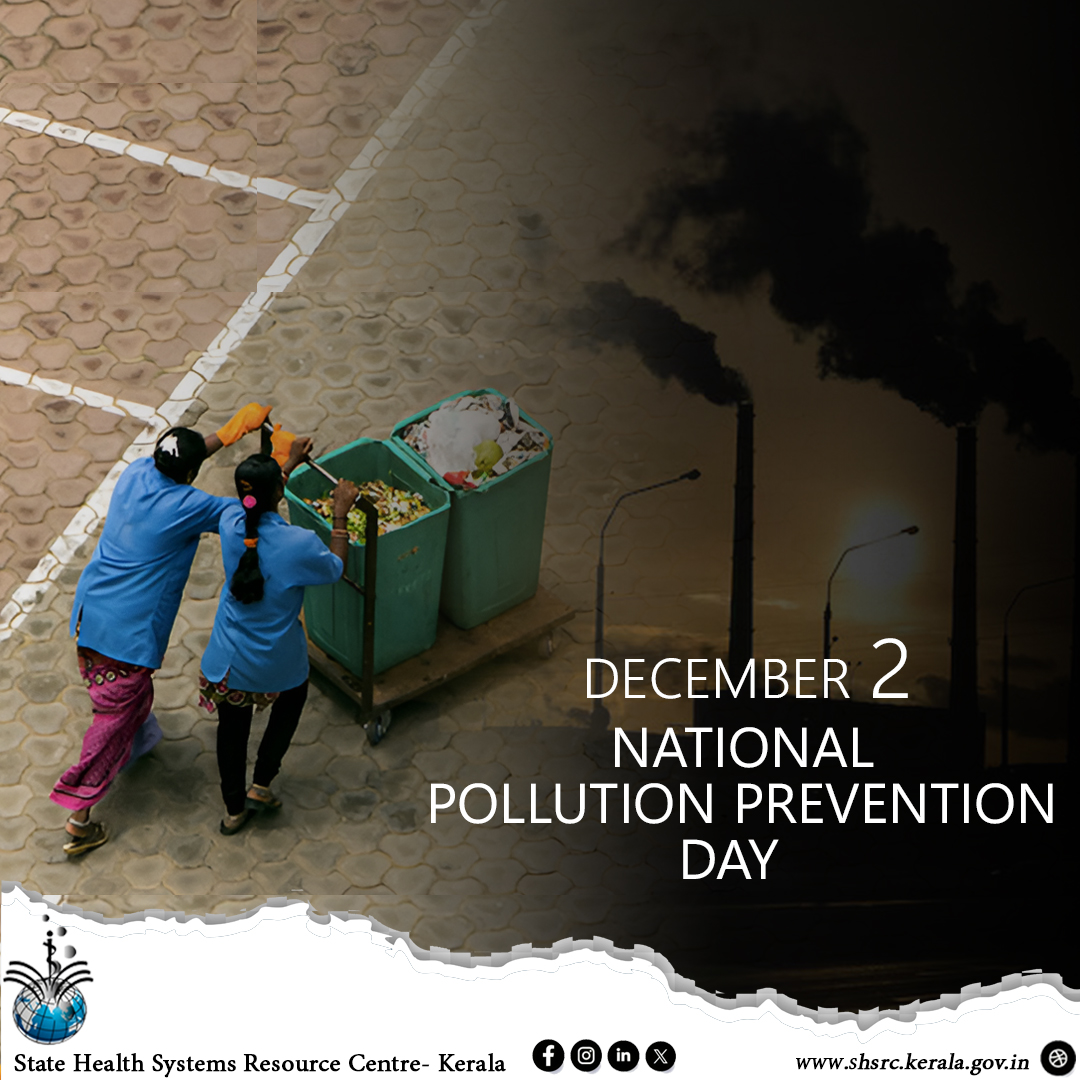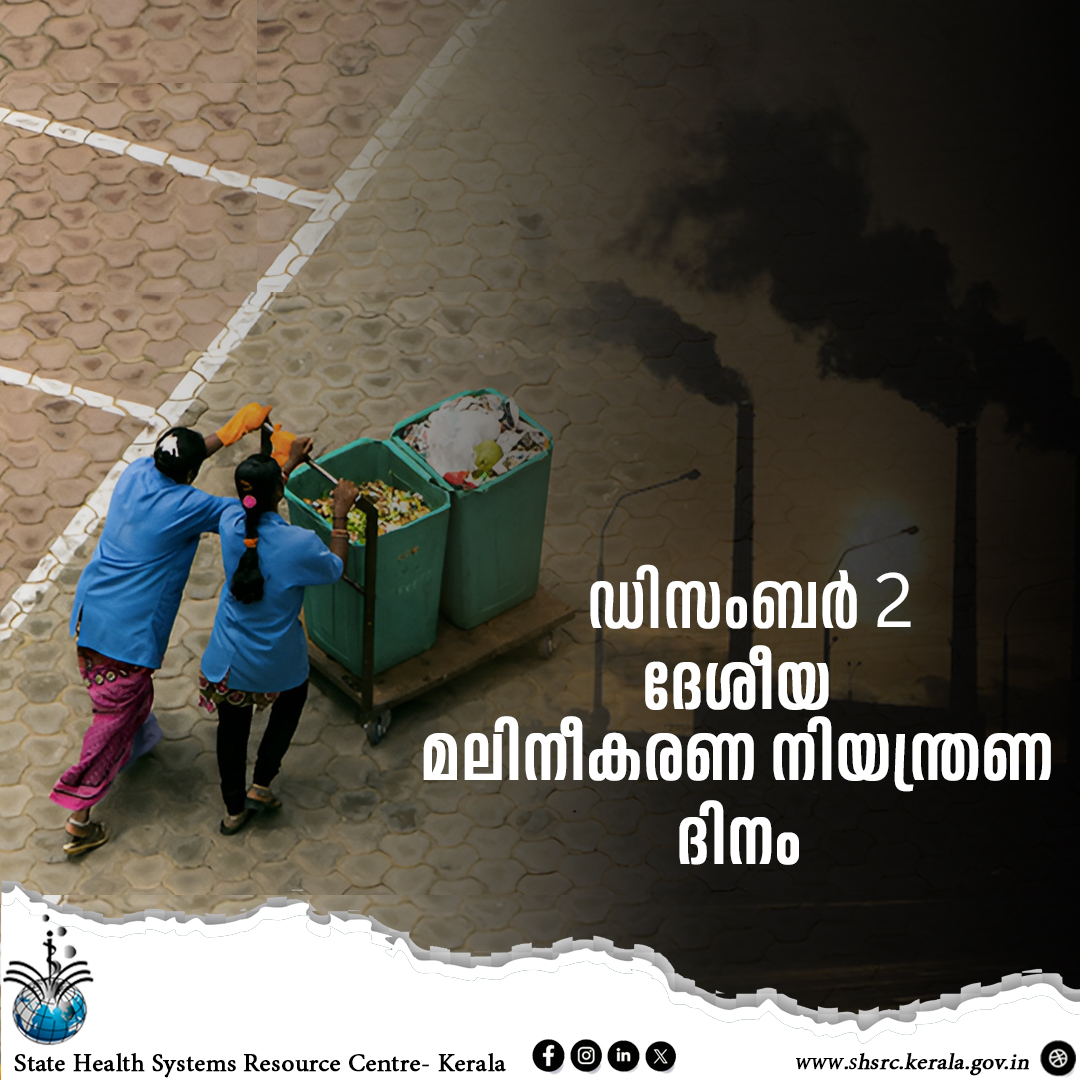Working Hours : 10.15 am - 5.15pm
IEC ,BCC Materials
World Osteoporosis Day
World Osteoporosis Day
20th October
This year the theme is 'LOVE YOUR BONES: Protect your future'
World Osteoporosis Day is observed globally on October 21st to raise awareness about bone health and promote the prevention, diagnosis, and treatment of osteoporosis and related bone diseases. This year's theme is "Love your bones: protect your future". World Osteoporosis Day was first celebrated on October 20, 1996 under the initiative of National Osteoporosis Society, UK. Osteoporosis (meaning ‘porous bone’) is a silent progressive disease caused by deterioration of bone tissue and loss of bone mass. The major symptoms of the disease are back pain, wrist and hip fractures, easily broken bones and stooped posture. The disease having a profound impact on individual mortality and morbidity, while also placing a heavy burden on healthcare systems and society. Among adults, nearly one out of five have osteoporosis. Globally, the prevalence of osteoporosis is reported at 18.3%, with 41.5 million new cases in 2019. Projections suggest that between 2030 and 2034, the number of global incidence cases will rise to 263.2 million. The prevalence was slightly higher in females than in males and nearly one out of three women in the postmenopausal age group are affected.
Risk factors
Prevention strategies
Treatment of Osteoporosis
World Iodine Deficiency Day
WORLD IODINE DEFICIENCY DAY
GLOBAL IODINE DEFICIENCY DISORDERS (IDD) PREVENTION DAY, 2024
OCTOBER 21, 2024
What is Iodine and Iodine Deficiency?
Iodine is an essential micronutrient required for normal thyroid function, growth, and development. Since the body cannot produce Iodine, it must be obtained through food. Presence of iodine in food depends on iodine content of local soil. Sub optimal intake of iodine causes inadequate thyroid hormone production which leads to a spectrum of adverse outcomes collectively called as Iodine deficiency disorders.
Symptoms
Who is at high risk?
While areas of severe iodine deficiency stretches from Jammu & Kashmir across North India to the North-East, cases of IDD have also emerged in central and southern states. IDD can affect anyone, regardless of age, gender, or socio-economic status. The most damaging consequences of IDD are in the first 1000 days of life, from conception until the age of 2 years.
Affects all ages, both sexes and different socio-economic status.
The most damaging consequences of IDD are in the first 1000 days of life, from conception until the age of 2 years
Treatment and Prevention
To combat Iodine deficiency, healthcare professionals often recommend dietary changes, iodine supplements, or thyroid hormone replacement for individuals with hypothyroidism. One of the most effective ways to restore and maintain healthy iodine levels is by incorporating iodine-rich foods into your diet.
Key foods rich in iodine include iodized salt, dairy products such as cottage cheese and yogurt, seafood like tuna, shrimp, and crab, as well as eggs.
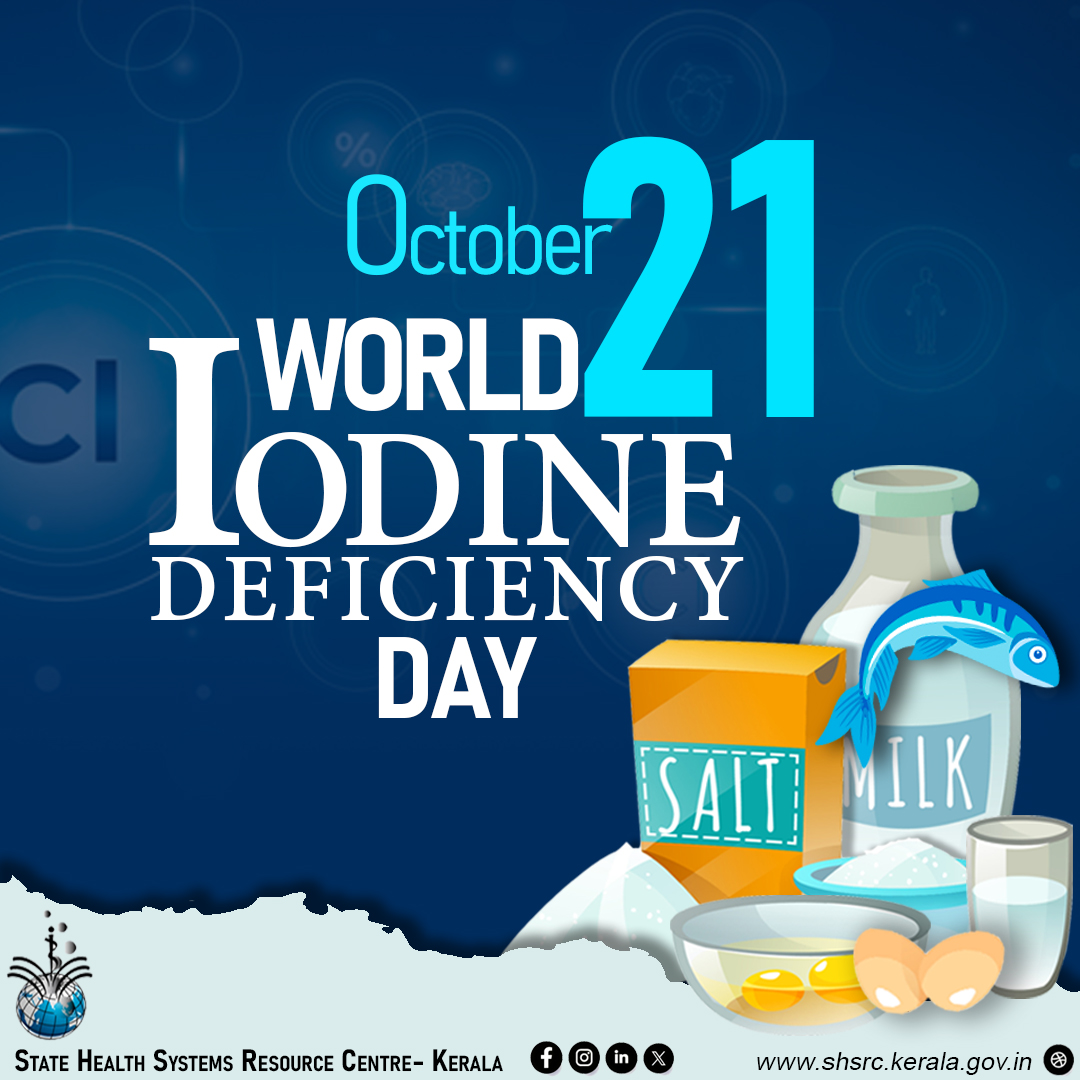
International Day for Climate Action
International Day for Climate Action
24th October
The International Day Against Climate Change is an important day established by the United Nations (UN) to raise global awareness about the catastrophic effects of climate change and the urgent need for collective action.
Actions to Tackle Climate Change:
- Conserve energy: Use LED bulbs, turn off appliances, and regulate your fridge and freezer to save energy.
- Walk, cycle, or use public transport to reduce air pollution and energy consumption.
- Eat more plant-based foods like veggies, fruits, and legumes; reducing meat and dairy intake helps conserve water and energy.
- Travel mindfully: choose virtual meetings over flights and take the train when possible to reduce your carbon footprint.
- Waste less food: Buy only what you need and avoid throwing away food (by monitoring quantities and storage.)
- Reduce, reuse, repair, recycle: Embrace the Circular Economy by cutting down on waste.
- Switch to solar energy or green power for a more sustainable home.
- Electric Vehicles are more sustainable choice than conventional fuel- powered cars, until better options emerge.
- Support eco-friendly products and local producers—your choices matter!
- Speak up for climate action: Encourage your community to take bold steps towards sustainability.
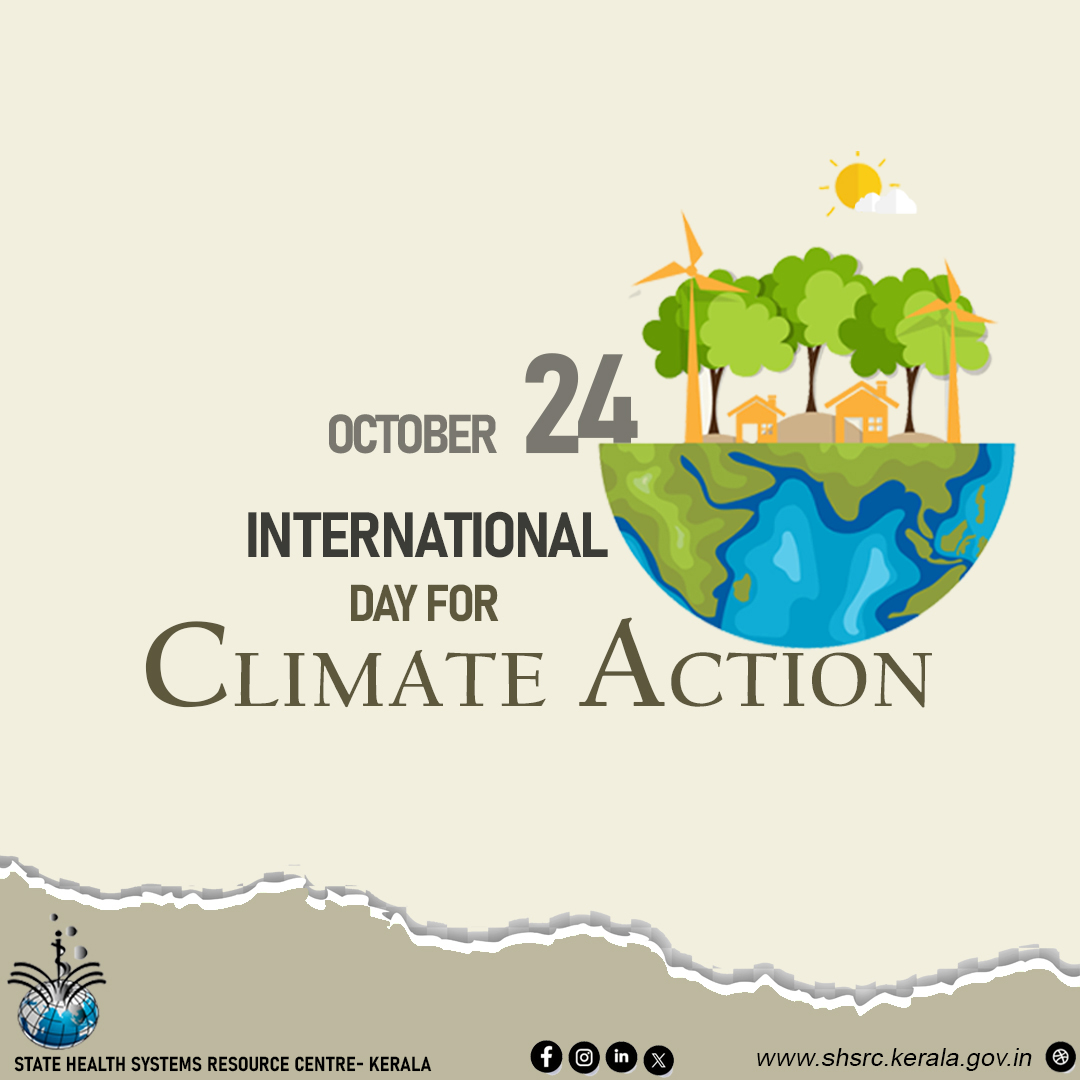
WORLD STROKE DAY
WORLD STROKE DAY
World Stroke Day, observed annually on October 29, highlights the widespread impact of strokes on individuals and communities worldwide. This day focuses on raising awareness about stroke prevention, treatment, and the critical importance of timely intervention. World Stroke Day 2024 theme is "Greater than Stroke active challenge" aims to drive awareness of stroke and act to reduce the risk of stroke. Organized by the World Stroke Organization (WSO), this day aims to educate the public about the signs and symptoms of a stroke, the importance of seeking immediate medical attention, and the long-term care and support that stroke survivors may require. The event also highlights preventive strategies that individuals can adopt to lower their risk of having a stroke. Therefore, this day emphasizes the need for healthcare professionals, organizations, and communities to collaborate in raising awareness about the signs, symptoms, and risk factors of stroke. Also through united efforts, we can work to reduce the incidence and impact of this life- changing condition, encouraging healthier lives and strengthening community resilience.
World Immunization day
World Immunization day
November 10
Immunization is the process by which a person becomes protected against a disease through vaccination. Vaccines stimulate the body’s own immune system to protect the person against subsequent infection or disease. Vaccines are among the most advanced achievements of modern science, decreasing infant mortality by half and saving millions of lives throughout the world. Vaccines reduce risks of getting a disease by working with your body's natural defences to build protection. World Immunization Day, celebrated every year on November 10th, aims to raise awareness about the benefits of vaccination and its role in preventing numerous diseases over the long term.
After decades of progress in improving access to vaccines in lower-income countries, the world stood at a crossroads. The pandemic caused vaccine coverage for routine childhood immunization to drop for the first time in over 20 years, as health systems prioritized addressing COVID-19. This setback led to millions of children missing out, reversing earlier progress, and risking the vulnerability of an entire generation of children to diseases that had long been in decline. In 2023, 14.5 million children worldwide missed out on any vaccination, making them "zero-dose" children. The global coverage for the third dose of the vaccine protecting against diphtheria, tetanus, and pertussis (DTP3) reached 84%, while the proportion of children receiving a first dose of the measles vaccine stood at 83%, falling below the 2019 level of 86%. Health systems suffered severe setbacks in 2020 and 2021 due to the COVID-19 pandemic, related disruptions, and vaccination campaigns.
The World Health Organization (WHO), in association with various international and local groups, joined hands together in this worldwide event to conduct various events, workshops, seminars to raise awareness about immunization. Entitled “Raising Generation Immunity,” GAVI's (GAVI-Global Alliance for Vaccine and Immunization) Global Vaccine Impact Conference took place on 13-15 June 2023 in Madrid, Spain to develop strategies to address the challenges and opportunities of the future. World Immunization Week, celebrated in the last week of April 2024, with the theme "Humanly Possible: Immunization for All," aims to highlight the need for collective action and to promote the use of vaccines to protect people of all ages against disease.
World Pneumonia Day
World Pneumonia Day
12th November
Theme : Championing the fight to stop pneumonia
Pneumonia is an airborne infection affecting the human respiratory system. Worldwide, it is the leading cause of death in children under age 5. The major risk factors of pneumonia are chronic lung diseases, smoking, weakened immune system, malnutrition, exposure to pollutants, etc.
Risk Groups
How Can You Protect Yourself?
Main symptoms of Pneumonia
World Pneumonia Day
World Diabetes Day
November 14
Diabetes is a chronic disease-causing high blood glucose level that occurs when the body cannot produce enough insulin or effectively utilise the insulin it produces. Insulin is a hormone that acts as a key to let the blood sugar into the cells to use as energy.
Every year Nov 14th is observed as world diabetes day on the birthday of Sir Frederick Banting who co discovered insulin along with Charles Best.
The 3 major types of Diabetes are
Type 2 diabetes can be prevented by
Signs to watch out for
If consistently feel very thirsty, tired, urinate more frequently, blurring of vision, losing weight unintentionally and frequent infections than usual, consider getting the blood sugar checked. Living well with diabetes: Even with diabetes a healthy life is possible. Focus on
But if go uncontrolled it may end up in complication, which includes
Nearly half of those with diabetes are undiagnosed in low- and middle-income countries. So, “break the barriers and bridge the gaps” to reduce diabetes risk and ensure equitable access to good quality care for those who are affected and support each other in the journey towards a healthier life.
New Born Care Week
New Born Care Week
National Newborn Care Week, observed annually from November 15 to 21, is dedicated to highlighting the essential care that newborns require during their first days and weeks of life. This week serves to raise awareness about the importance of proper newborn care, parental education, and the development of a robust healthcare system to support these delicate yet resilient infants. The first month of life is the most crucial period for a child’s survival. Despite progress in lowering neonatal mortality rates, newborns remain at considerable risk. National Newborn Care Week highlights the importance of timely medical care, nurturing support, and comprehensive assistance to protect the health and well-being of newborns.
The Theme for National Newborn Care Week 2024 is "Vision for the Future: Empowering Parents and Healthcare Systems”
National Epilepsy Day
National Epilepsy Day
17 November 2024
Epilepsy is a chronic noncommunicable disease of the brain that affects around 50 million people worldwide. It is characterized by recurrent seizures, which are brief episodes of involuntary movement that may involve a part of the body (partial) or the entire body (generalized) and are sometimes accompanied by loss of consciousness and control of bowel or bladder function. Epilepsy accounts for a significant proportion of the world’s disease burden, affecting around 50 million people worldwide. The estimated proportion of the general population with active epilepsy at a given time is between 4 and 10 per 1000 people.
In India alone, approximately 10 million people live with epilepsy, experiencing seizures that can disrupt daily life. Despite its prevalence, epilepsy is still widely misunderstood, leading to stigma and misconceptions. Many individuals in developing countries lack access to proper diagnosis and treatment, highlighting the need for increased awareness and healthcare resources.
An estimated 25% of epilepsy cases are preventable. The major modifiable risk factors for epilepsy are perinatal insults, central nervous system infections, traumatic brain injury and stroke. Preventing epilepsy is an urgent unmet need. Effective interventions for prevention are available and delivered as part of broader public health responses in maternal and newborn health care, communicable disease control, injury prevention and cardiovascular health.
Epilepsy Day is to raise awareness about epilepsy, reduce the stigma surrounding the condition, educate communities about its impact, and advocate for better support and healthcare for individuals living with epilepsy. It is an opportunity to promote understanding, support research efforts, and improve the quality of life for those affected by epilepsy worldwide. Educating communities about epilepsy is important for dispelling myths and eradicating discrimination. By promoting awareness, we can encourage compassion and empathy for people living with epilepsy. Early diagnosis and treatment are crucial for properly controlling the condition and increasing the quality of life for individuals affected.
The most common ways to reduce the risk of developing epilepsy include preventing traumatic brain injuries, reducing the likelihood of stroke and heart disease, preventing infectious diseases, and maintaining good hygiene.
At the Global level, International Epilepsy Day is celebrated on the second Monday of February every year
World Antimicrobial Awareness Week
World Antimicrobial Awareness Week
NWhen bacteria, viruses, fungi, and parasites stop reacting to antimicrobial agents, it's known as antimicrobial resistance or AMR. Drug resistance increases the risk of disease transmission, serious illness, and death by rendering antibiotics and other antimicrobial agents ineffective and making it harder or impossible to treat infections. Antimicrobials - including antibiotics, antivirals, antifungals and antiparasitic - are medicines used to prevent and treat infections in humans, animals and plants. Microorganisms that develop antimicrobial resistance are sometimes referred to as “superbugs”.
World Antimicrobial Awareness Week (WAAW) is a global healthcare event focused on preventing the emergence and spread of antibiotic resistance; and promoting best practices among the public, health workers, and policymakers by raising awareness of the issue worldwide during the week of November 18 to November 24. A global initiative, World AMR Awareness Week (WAAW) aims to increase knowledge and comprehension of AMR and encourage One Health stakeholders to adopt best practices to lessen the emergence and spread of drug-resistant infections.
The theme for the World AMR Awareness Week (WAAW) 2024 is, “Educate. Advocate. Act now.” This theme was chosen based on feedback from an online survey among stakeholders from the human, animal, plant, and environmental health sectors, which collected nearly 200 responses globally. Antimicrobial resistance (AMR) is a pressing global health and socioeconomic crisis. It significantly affects the environment, food production, and the health of people and animals. Drug-resistant-pathogens pose a threat to everyone, everywhere. Yet, much more can be done to raise public and stakeholder awareness. Therefore, this year’s theme calls on the global community to educate stakeholders on AMR, advocate for bold commitments and take concrete actions in response to AMR.
Global Scenario
Indian Scenario
High AMR Rates: India is among the countries with the highest rates of AMR due to factors like over-prescription, self-medication, and inadequate regulation.
Public Awareness Campaigns: Efforts to raise awareness about the consequences of antibiotic misuse are ongoing, particularly during WAAW.
National Action Plan: The Indian government has implemented a National Action Plan on AMR, which aims to improve surveillance, infection prevention, and responsible antibiotic use.
Healthcare Challenges: Overcrowded hospitals and poor sanitation contribute to the spread of resistant infections. Education for healthcare providers is crucial.
Kerala Scenario
State Initiatives: Kerala has been proactive in addressing AMR, with initiatives focused on antibiotic stewardship and infection control in healthcare settings.
Awareness Programs: The state government runs awareness campaigns in collaboration with local health authorities, schools, and community organizations to educate the public.
Research and Surveillance: Kerala is enhancing its surveillance of AMR patterns and investing in research to understand local resistance mechanisms better.
Collaborative Approach: Efforts are being made to engage various stakeholders, including healthcare professionals, educators, and the community, in the fight against AMR.
Conclusion
World AMR Awareness Week 2024 serves as a critical platform to highlight the global, Indian, and Kerala-specific challenges posed by antimicrobial resistance. By focusing on collaboration and awareness, it aims to mobilize efforts at all levels to combat this pressing health threat effectively.
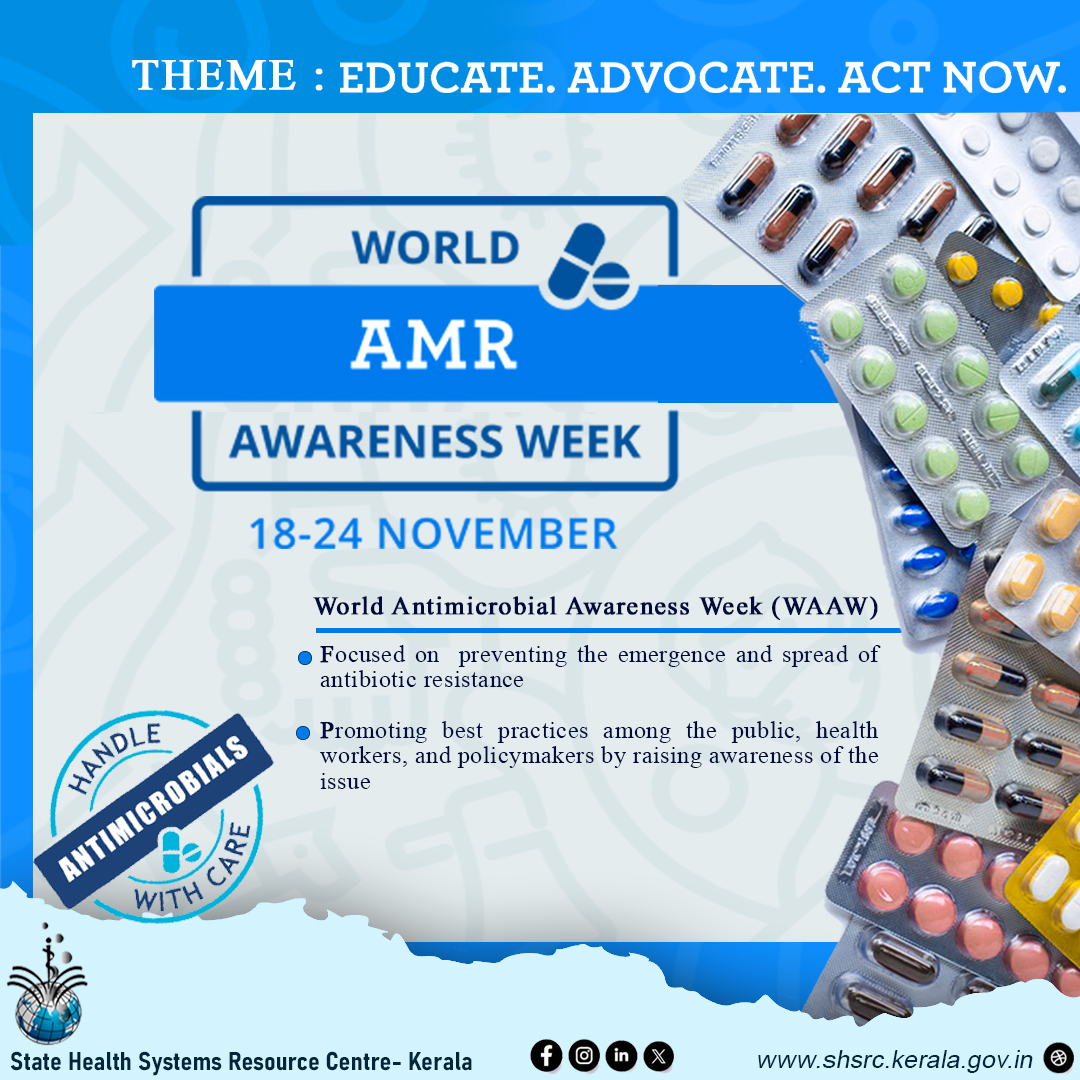
World COPD Day
World COPD Day
November 20
Chronic Obstructive Pulmonary Disease (COPD) is a preventable and treatable lung diseasethat causes breathlessness, chronic cough, and sputum production. It severely impacts dailyactivities and quality of life. This year’s theme, "Know Your Lung Function" emphasizesthe importance of lung health, early diagnosis, and intervention.
Causes of COPD:
Key Steps to Protect Your Lungs:
International Day of Persons With Disabilities
International Day of Persons With Disabilities
December 03rd
The day focuses on advocating for the rights and well-being of individuals with disabilities across all the levels of society and also aims to raise awareness about the challenges faced by them in the various aspects of political, social, economic, and cultural life. This year's theme for the International Day of Persons with Disabilities is "Amplifying the leadership of persons with disabilities for an inclusive and sustainable future." The International Day of Persons with Disabilities offers a key opportunity to shed light on the challenges faced by individuals with disabilities while promoting initiatives that foster inclusivity, ensuring that everyone is acknowledged and empowered to contribute to the society.
National Pollution Prevention Day
National Pollution Prevention Day
December 2nd
National Pollution Control Day is observed every year on December 2nd to commemorate those who tragically lost their lives in the 1984 Bhopal Gas Tragedy. This disaster, which took place on the night of December 2-3, 1984, saw the release of the highly toxic gas Methyl Isocyanate (MIC) from a pesticide plant in Bhopal, India. It resulted in thousands of deaths and is considered one of the worst industrial pollution catastrophes in history.
Significance of National Pollution Control Day
The day serves as a reminder of the dangers posed by industrial pollution and emphasizes the need for stronger environmental regulations and safety measures to prevent future tragedies. In addition to commemorating the victims of the Bhopal Gas Tragedy, National Pollution Control Day aims to raise awareness about the harmful impacts of air, water, and land pollution and to promote the implementation of effective pollution control measures across India.
This day is a call to action for individuals, industries, and governments to take concrete steps toward reducing pollution and safeguarding the environment for future generations. Let's remember that preventing pollution starts with each of us.
World AIDS Day
World AIDS Day
1st December 2024
Theme: “Take the rights path: My health, my right!”
HIV (Human Immunodeficiency Virus) is a virus that attacks the immune system, making it harder for the body to fight infections and diseases. AIDS (Acquired Immune Deficiency Syndrome) is the advanced stage of HIV, but with early diagnosis and treatment, life can be prolonged.
It’s important to remember that HIV is not a death sentence. With proper care and consistent antiretroviral therapy (ART), people living with HIV can lead healthy, fulfilling lives, just like those who are HIV-negative. By achieving and maintaining an undetectable viral load through prescribed ART, individuals not only protect their own health but also eliminate the risk of transmission, empowering them to live without fear and contributing to the well-being of their communities.
Tackling stigma and discrimination in communities is essential in the fight against HIV and AIDS. These barriers prevent individuals from seeking care and support, making it harder to address this condition effectively. However, with the advancements in HIV prevention, diagnosis, and treatment, we can ensure that no one is left behind.
Together, we can fight HIV and AIDS by breaking down stigma and discrimination and ensuring that everyone has the right to quality healthcare and a life free from fear and exclusion. Let’s unite in the fight.


